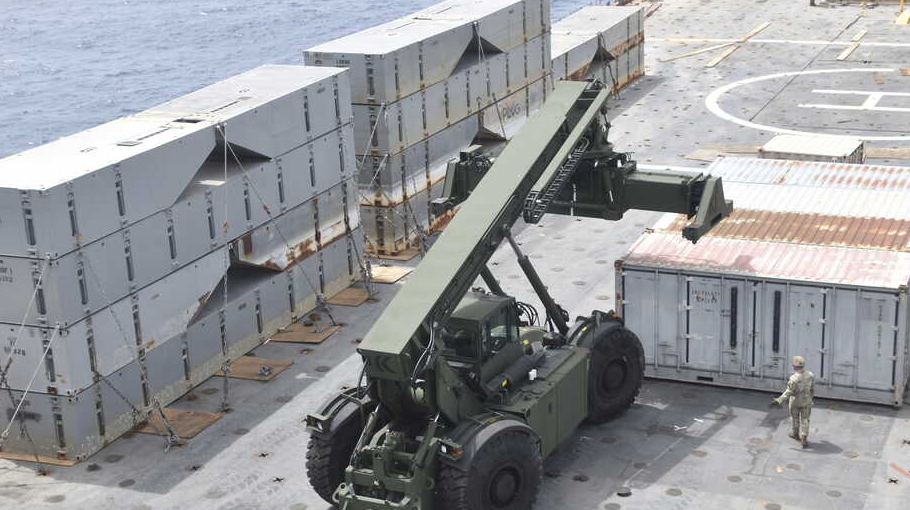Northern Gaza is now in ‘full-blown famine’
UN official says

A top U.N. official said Friday that hard-hit northern Gaza was now in “full-blown famine” after more than six months of war between Israel and Hamas and severe Israeli restrictions on food deliveries to the Palestinian territory.
Cindy McCain, the American director of the U.N. World Food Program, became the most prominent international official so far to declare that trapped civilians in the most cut-off part of Gaza had gone over the brink into famine.
“It’s horror,” McCain told NBC’s “Meet the Press” in an interview to air Sunday. “There is famine — full-blown famine — in the north, and it’s moving its way south.”
She said a cease-fire and a greatly increased flow of aid through land and sea routes was essential to confronting the growing humanitarian catastrophe in Gaza, home to 2.3 million people. There was no immediate comment from Israel, which controls entrance into Gaza and says it is beginning to allow in more food and other humanitarian aid through land crossings.
The panel that serves as the internationally recognized monitor for food crises said in March that northern Gaza was on the brink of famine and likely to experience it in May. Since March, northern Gaza had not received anything like the aid needed to stave off famine, a U.S. Agency for International Development humanitarian official for Gaza told The Associated Press. The panel’s next update will not come before this summer.
The USAID official said on-the-ground preparations for a new U.S.-led sea route were on track to bring in more food — including treatment for hundreds of thousands of starving children — by early or
mid-May. That’s when the American military expects to finish building a floating pier to receive the shipments.
Ramping up the delivery of aid on the planned U.S.-backed sea route will be gradual as aid groups test the distribution and security arrangements for relief workers, the USAID official said.
The official spoke on condition of anonymity, citing security concerns accompanying the official’s work on conflicts. They were some of the agency’s first comments on the status of preparations for the Biden administration’s $320 million Gaza pier project, for which USAID is helping coordinate on-the-ground security and distribution.
At a factory in rural Georgia on Friday, USAID Administrator Samantha Power pointed to the food crises in Gaza and other parts of the world as she announced a $200 million investment aimed at increasing production of emergency nutritional paste for starving children under 5.
Power spoke to factory workers, peanut farmers and local dignitaries sitting among pallets of the paste at the Mana nonprofit in Fitzgerald. It is one of two factories in the U.S. that produces the nutritional food, which is used in clinical settings and made from ground peanuts, powdered milk, sugar and oil, ready to eat in plastic pouches resembling large ketchup packets.
“This effort, this vision meets the moment,” Power said. “And it could not be more timely, more necessary or more important.”
Under pressure from the U.S. and others, Israeli officials in recent weeks have begun slowly reopening some border crossings for relief shipments.
But aid coming through the sea route, once it’s operational, still will serve only a fraction — half a million people — of those who need help in Gaza. Aid organizations including USAID stress that getting more aid through border crossings is essential to staving off famine.
Children under 5 are among the first to die when wars, droughts or other disasters curtail food. Hospital officials in northern Gaza reported the first deaths from hunger in early March and said most of the dead were children.
Power said the U.N. has called for 400 metric tons of the nutritional paste “in light of the severe hunger that is pervading across Gaza right now, and the severe, acute humanitarian crisis.” USAID expects to provide a quarter of that, she said.
Globally, she said at the Georgia factory, the treatment made there “will save untold lives, millions of lives.”
USAID is coordinating with the World Food Program and other humanitarian partners and governments on security and distribution for the pier project, while U.S. military forces finish building it. President Joe Biden, under pressure to do more to ease the humanitarian catastrophe in Gaza as the U.S. provides military support for Israel, announced the project in early March.


